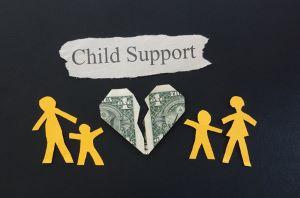630-462-9500
After Hour New Client Telephone Number 630-690-6077
1776 S. Naperville Road, Building B, Suite 202,
Wheaton, IL 60189
Recent Blog Posts
What Are My Rights as an Unmarried Father in Illinois?
 If you recently found out that your current or former dating partner is pregnant, you may have questions about your legal rights. You may wonder if you have the same rights to your child as the child's mother or what you need to do to obtain these rights. You may also have questions about how child custody and parenting time will be divided once the child is born. In Illinois, fathers have the same rights as mothers. However, there are certain steps you will need to take in order to establish these important rights.
If you recently found out that your current or former dating partner is pregnant, you may have questions about your legal rights. You may wonder if you have the same rights to your child as the child's mother or what you need to do to obtain these rights. You may also have questions about how child custody and parenting time will be divided once the child is born. In Illinois, fathers have the same rights as mothers. However, there are certain steps you will need to take in order to establish these important rights.
Paternity Laws in Illinois
When a married couple has a child, the law automatically assumes that the husband of the woman giving birth is the child's father. He does not need to take additional steps to establish his paternity. However, the same is not true for unmarried fathers. To establish legal parentage of your child, you and the child's mother will need to sign a Voluntary Acknowledgement of Paternity (VAP) form. This form is typically available at the hospital where the child is born, or it may be obtained through the Illinois Healthcare and Family Services department or your local county clerk. If there is a question as to your biological relationship to the child, you may need to take a DNA test before you can establish paternity.
What Should I Do if My Spouse Makes Untrue Accusations During Divorce?
 Divorce can bring out the worst in people. If you are contemplating divorce or have already decided to end your marriage, you may have concerns about your ex making false accusations against you. Some people make up lies about their spouse during divorce out of bitterness and spite. Even if the accusations are not founded in reality, they have the potential to cause significant problems for the accused spouse. If your spouse has accused you of abuse, violence, hiding assets, or other forms of wrongdoing, it is important to work with an experienced divorce lawyer.
Divorce can bring out the worst in people. If you are contemplating divorce or have already decided to end your marriage, you may have concerns about your ex making false accusations against you. Some people make up lies about their spouse during divorce out of bitterness and spite. Even if the accusations are not founded in reality, they have the potential to cause significant problems for the accused spouse. If your spouse has accused you of abuse, violence, hiding assets, or other forms of wrongdoing, it is important to work with an experienced divorce lawyer.
Keep a Detailed Record of Your Actions and the Accusations
One of the best ways to help your lawyer prove that your soon-to-be ex-spouse is lying about your alleged abuse or other misconduct is to gather evidence. Keep records of any text messages, voicemails, or emails that your spouse sends you. Make sure to also log or write down your own actions. You may be able to use this information to prove that your spouse's claims are untrue. For example, if your spouse accuses you of harming him or her on a certain date, you may be able to produce evidence that shows that you were out of town on this particular date. Demonstrating inconsistencies in your spouse's claims will weaken his or her credibility and help you defend yourself against the false accusations.
Will Current Child Support Payments Affect New Child Support Obligations?
 When married parents get divorced, or unmarried parents split up, one parent may be required to pay child support. The purpose of child support payments is to help the parent with the majority of parenting time pay for the costs associated with the child's housing, nutrition, clothing, and other needs. Child support also helps ensure that a child with unmarried or divorced parents enjoys a standard of living that is similar to what he or she would have received if his or her parents were still married. However, child support can also be a significant expense for the paying or “obligor” parent – especially when the parent has more than one child support obligation.
When married parents get divorced, or unmarried parents split up, one parent may be required to pay child support. The purpose of child support payments is to help the parent with the majority of parenting time pay for the costs associated with the child's housing, nutrition, clothing, and other needs. Child support also helps ensure that a child with unmarried or divorced parents enjoys a standard of living that is similar to what he or she would have received if his or her parents were still married. However, child support can also be a significant expense for the paying or “obligor” parent – especially when the parent has more than one child support obligation.
Child Support Considerations for Parents with Multiple Families
If you are a parent who is already paying child support, and you are considering divorce, you may have questions about how the child support you currently pay will affect your new obligations. You may wonder if you will be required to pay child support to both families, and if so, how you will afford multiple obligations. Child support payment amounts are typically calculated using a statutory formula described in the Illinois Marriage and Dissolution of Marriage Act (IMDMA). The amount that a parent is asked to pay is determined through the “Income Shares” calculation method. The Income Shares model involves four main steps:
What Issues Must Be Addressed in an Illinois Parenting Plan?
 If you are a parent who is getting divorced in Illinois, you will need to create a parenting plan or parenting agreement. According to Illinois law, parents must file a parenting plan within 120 days of filing for divorce. If they cannot agree on a parenting plan, they may each file their proposed plan separately from the other spouse. Parents who disagree may be able to negotiate a settlement through mediation or with help from their attorneys. If parents cannot reach an agreement, the court may need to intervene.
If you are a parent who is getting divorced in Illinois, you will need to create a parenting plan or parenting agreement. According to Illinois law, parents must file a parenting plan within 120 days of filing for divorce. If they cannot agree on a parenting plan, they may each file their proposed plan separately from the other spouse. Parents who disagree may be able to negotiate a settlement through mediation or with help from their attorneys. If parents cannot reach an agreement, the court may need to intervene.
Parental Responsibilities and Parenting Time
You and your spouse will need to make determinations about child custody, which is now referred to as the allocation of parental responsibilities, and parenting time. Parental responsibilities refers to decision-making authority about children's medical care, education, extracurricular activities, and religion. Parenting time refers to the days and times that a parent directly cares for the child.
How Is a Professional Practice Handled in an Illinois Divorce?
 One of the most significant parts of the divorce process is the division of marital assets and debts. Some divorcing couples are able to reach an agreement about property distribution through attorney-assisted negotiations. Others reach property distribution settlements through an alternative dispute resolution method like mediation or collaborative law. When a property distribution agreement cannot be reached, the case may go to trial. Complex assets such as investments, small businesses, and professional practices are often especially difficult to quantify and divide during divorce. If you are a doctor, accountant, or other professional, and you own your own practice, you should understand how the decisions about this practice may impact your divorce.
One of the most significant parts of the divorce process is the division of marital assets and debts. Some divorcing couples are able to reach an agreement about property distribution through attorney-assisted negotiations. Others reach property distribution settlements through an alternative dispute resolution method like mediation or collaborative law. When a property distribution agreement cannot be reached, the case may go to trial. Complex assets such as investments, small businesses, and professional practices are often especially difficult to quantify and divide during divorce. If you are a doctor, accountant, or other professional, and you own your own practice, you should understand how the decisions about this practice may impact your divorce.
Determining the Identity of a Professional Practice
How Can an Emergency Protection Order Help Me if I Am Being Abused?

If you have been the victim of domestic violence or you have reason to believe that a family or household member may become physically violent toward you or your children, there are legal actions you can take to protect yourself and your kids. A protection order or “restraining order” is a court order that prohibits a person from contacting or coming within a certain distance of another person. If the subject of the protection order violates the order, he or she faces immediate arrest and possible criminal charges. Obtaining an emergency order of protection is often the first step in leaving an abusive spouse or escaping an abusive family member.
How Does an Emergency Order of Protection Work?
Protection orders are used to protect against abuse, stalking, or harassment from former or current spouses, partners, roommates, or family members. An Emergency Order of Protection (EOP) can be customized to your particular situation. Your EOP may prohibit the abusive person or “respondent” from:
What Are the Benefits of Using Collaborative Law in an Illinois Divorce?
 If you are planning to divorce, you will need to make decisions about issues such as asset and debt division, child custody, spousal maintenance, and more. Reaching an agreement about these issues can be nearly impossible without the help of an attorney. Collaborative law is one option that may help you resolve divorce issues. During a collaborative divorce, spouses and their attorneys work together to find mutually-agreeable solutions to the unresolved issues and avoid going to trial.
If you are planning to divorce, you will need to make decisions about issues such as asset and debt division, child custody, spousal maintenance, and more. Reaching an agreement about these issues can be nearly impossible without the help of an attorney. Collaborative law is one option that may help you resolve divorce issues. During a collaborative divorce, spouses and their attorneys work together to find mutually-agreeable solutions to the unresolved issues and avoid going to trial.
How Does Collaborative Divorce Work?
In a collaborative divorce, both spouses retain attorneys who are trained in collaborative law. First, each spouse meets with his or her attorney to identify the unresolved issues and discuss their desired outcomes. Next, the spouses and their respective attorneys hold a series of meetings during which they negotiate divorce issues and discuss possible solutions.
How Are Pensions Valued and Divided in an Illinois Divorce?
 If you are like most working adults, you probably plan to enjoy your retirement to the fullest. This can make retirement funds a serious concern during divorce. Retirement accounts are typically treated the same as other types of marital assets. The portion of the retirement funds that were accumulated during the marriage are a marital asset subject to division, while the portion of the retirement funds that were accumulated before the marriage are not subject to division. However, accurately valuing retirement funds is not always as straightforward as it may seem. Pension plans are often especially difficult to accurately quantify and divide during divorce because the value of the pension relies on the future payout of the plan.
If you are like most working adults, you probably plan to enjoy your retirement to the fullest. This can make retirement funds a serious concern during divorce. Retirement accounts are typically treated the same as other types of marital assets. The portion of the retirement funds that were accumulated during the marriage are a marital asset subject to division, while the portion of the retirement funds that were accumulated before the marriage are not subject to division. However, accurately valuing retirement funds is not always as straightforward as it may seem. Pension plans are often especially difficult to accurately quantify and divide during divorce because the value of the pension relies on the future payout of the plan.
Methods of Valuing Pensions
Three of the most common valuations methods used to determine the present value of a pension for the purpose of asset division during divorce include:
Can a Father Be Awarded Sole Custody in an Illinois Divorce?
 In 2016, the Illinois Marriage and Dissolution of Marriage Act (IMDMA) underwent significant updates. What used to be called child custody is now called the “allocation of parental responsibilities.” The time that a parent spends directly caring for his or her child is referred to as “parenting time.” Although the terms “sole custody” and “joint custody” are outdated, these terms are still sometimes used to refer to different types of parenting arrangements. If you are a father who is considering divorce, you may want to know if you could be awarded sole custody, or more accurately, all of the parental responsibilities and/or parenting time. The answer to this question will depend on a variety of factors.
In 2016, the Illinois Marriage and Dissolution of Marriage Act (IMDMA) underwent significant updates. What used to be called child custody is now called the “allocation of parental responsibilities.” The time that a parent spends directly caring for his or her child is referred to as “parenting time.” Although the terms “sole custody” and “joint custody” are outdated, these terms are still sometimes used to refer to different types of parenting arrangements. If you are a father who is considering divorce, you may want to know if you could be awarded sole custody, or more accurately, all of the parental responsibilities and/or parenting time. The answer to this question will depend on a variety of factors.
Reaching an Agreement About Your Illinois Parenting Plan
Parents who divorce in Illinois are asked to create a parenting plan in which they describe how they plan to divide parental responsibilities and parenting time, as well as how other important matters will be addressed. Many divorcing couples struggle to reach an agreement about the provisions in their parenting plan. If you and your spouse disagree about child custody issues, a family law attorney may be able to help you negotiate a parenting plan that you can both agree to. Alternative dispute resolution methods like mediation or collaborative law may also enable you to resolve custody disagreements.
Technology Concerns You Should Address During an Illinois Divorce
 Now that so many adults are working from home, we are relying on technology even more often than we did before the COVID-19 pandemic. Many people are using cellphones, laptops, and home computers for everything from answering work emails to paying their bills. Because technology is such an integral part of our lives, addressing technology concerns during divorce is crucial. It is important to guard your privacy, watch what you say, and ensure that your online activity does not lead to negative consequences during your case.
Now that so many adults are working from home, we are relying on technology even more often than we did before the COVID-19 pandemic. Many people are using cellphones, laptops, and home computers for everything from answering work emails to paying their bills. Because technology is such an integral part of our lives, addressing technology concerns during divorce is crucial. It is important to guard your privacy, watch what you say, and ensure that your online activity does not lead to negative consequences during your case.
Social Media Is Less Private Than You Think
Due to COVID-19 lockdowns, many people have replaced in-person meetups with social media communication. While websites like Twitter, Instagram, Facebook, and LinkedIn can be great places to network and keep in touch with loved ones, using social media during divorce can be risky. Most family law attorneys have seen a marked increase in the role of social media during divorce. It is very possible that pictures, videos, and messages you post online could be used against you. Do not make the mistake of assuming that your social media activity is private just because you have set your profile status to “private.” There are many different ways to access online information that was only intended to be viewed by a small number of close friends.




















